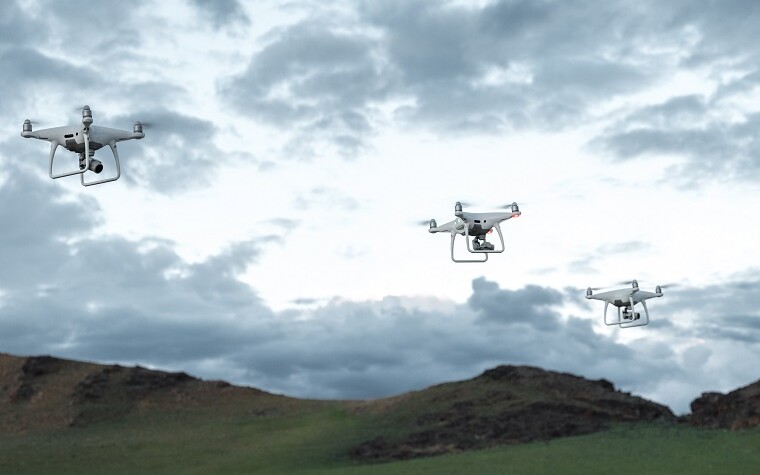This week’s “Around the Commercial Drone Industry” news round-up looks at a study on autonomous drone traffic solutions, an initiative to plant mangrove trees in the UAE using UAVs, and research on public perceptions of innovative aerial services.
The First Large-Scale Autonomous Drone Traffic Solution
Researchers at Budapest’s Eötvös Loránd University (ELTE) have shown how self-organizing drone flock could pave the way for a “safe traffic solution for smart cities of the future.” As explained in a Tech Xplore article, members of ELTE’s Department of Biological Physics have been investigating how drones in traffic “may have individual routes and goals, leading to potential conflicts.” By “combining a special, forward-thinking and real-time updating route planner with the interactions of traditional bio-inspired flocking models,” the researchers have created autonomous robots that “can optimally avoid most traffic conflicts and safely manage the remaining ones by directly coordinating with their neighbors.”
Using this approach, the researchers said, “a new phase of automated swarm drone operations can start across a wide range of applications, from group spraying to drone-based cargo transport and defense industry applications.”
Planting 100 Million Mangrove Trees by UAV
New Scientist reports on an ambitious initiative in Abu Dhabi in the United Arab Emirates to plant 100 million mangrove trees by 2030. Central to the effort is the use of specially adapted drones that can carry “up to 6,000 Avicennia marina seeds with a delivery system that shoots them downwards, ensuring they get stuck into tidal mud, allowing them to successfully propagate.” Last year, these vehicles distributed more than six million seeds as part of the project. Building on information gathered through the effort, area leaders hope to bring this UAV-based approach to other mangrove growing regions in the country.
Gauging Public Acceptance of Drones
Public acceptance is essential to greater adoption of uncrewed technology. With this in mind, a project research team recently conducted a “psychoacoustic experiment in parallel with an acceptance survey of innovative aerial services.” The researchers were from ImAFUSA, “a European project that focuses on evaluating factors that influence citizens’ acceptance of Urban Air Mobility (UAM).”
For the study, more than 130 people from universities and vocational education centers in Greece took part “a three-step live, outdoor experiment to gauge public perceptions of innovative aerial services, and responses to drone sounds.” The outdoor study evaluated “ambient sound scenes were perceived in two different park settings and to find out how adding drone noise affected those impressions” Researchers recorded the emotional responses of the participants, such as “annoyance and loudness.” They also asked participants to answer questions “about their perception of drones after they were exposed to the drone flights and sounds.”
Findings will help ImAFUSA “deliver a framework that will help Local Authorities and other U-space stakeholders and users with the delivery of socially acceptable and beneficial UAM deployment in cities.”















Comments